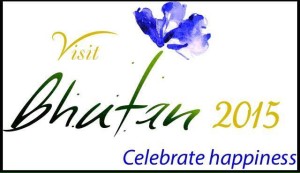
It’s to take over licensing of travel agencies, tourist class accommodation and restaurants.
The Tourism Council of Bhutan (TCB) will take over the licensing of travel agencies, tourist class accommodation and restaurants as per the requirement of the revised tourism rules and regulations, 2014, that the cabinet endorsed recently.
However, the regulation is yet to be finalised, as the cabinet has instructed the council to incorporate few changes.
The regional trade and industry office currently issues licenses to travel agencies and hotels, while the council issues licenses to tourist guides and trekking cooks.
Once finalised, the annual license fee would also increase to Nu 13,000 from the existing Nu 12,000. TCB will also collect Nu 50 a day as late renewal fee.
The revised regulation is more stringent on license cancellation and suspension, should a tour operator or guide get involved in any fraudulent activity.
For instance, a disciplinary committee will handle the case and its decision would be based on factors including court verdicts, if a case is registered with the court. The council in suspending a license shall consider the severity of the offence and suspend the license for a period not more than three years.
The revised regulation has empowered the council with the authority to impose penalties on a person, who is guilty of an offence under these regulations, depending on the gravity. The penalties include a fine up to Nu 25,000 for the first instance, or notice of caution if an offence is not grave, and a fine of Nu 50,000 for the second instance, while on the third and fourth instances, licenses are suspended or cancelled.
In case of a severe offence, the company or the guide can also be blacklisted, prohibiting him or her from carrying out any tourism-related services.
Unlike the previous tourism rules and regulations of 1999, the revised regulation doesn’t mention the high and low seasons, but has categorised the minimum daily tariff under high season and other season. The high season months are March, April, May, September, October, November, while the rest are the “other season” months.
The council’s vice chairman, economic affair minister Norbu Wangchuk, said the existing rules and regulations have been revised to provide a legal framework.
Lyonpo said the council had endorsed the revised regulations in July 2014, after which it was submitted to the cabinet for approval. “Currently, the tourism industry operates under three stand alone regulations, which now has been integrated into one,” lyonpo said.
The three regulations, lyonpo said, were for tour operators, trekking and familarisation tours.
Tourists, hotels, tour operators and guides, among others, being the main stakeholders, lyonpo said that there was a need to clarify their roles and responsibilities. “The revised rules and regulations, 2014 will now serve as the guide for the tourism industry.”
Source: Kinga Dema (KUENSEL)


